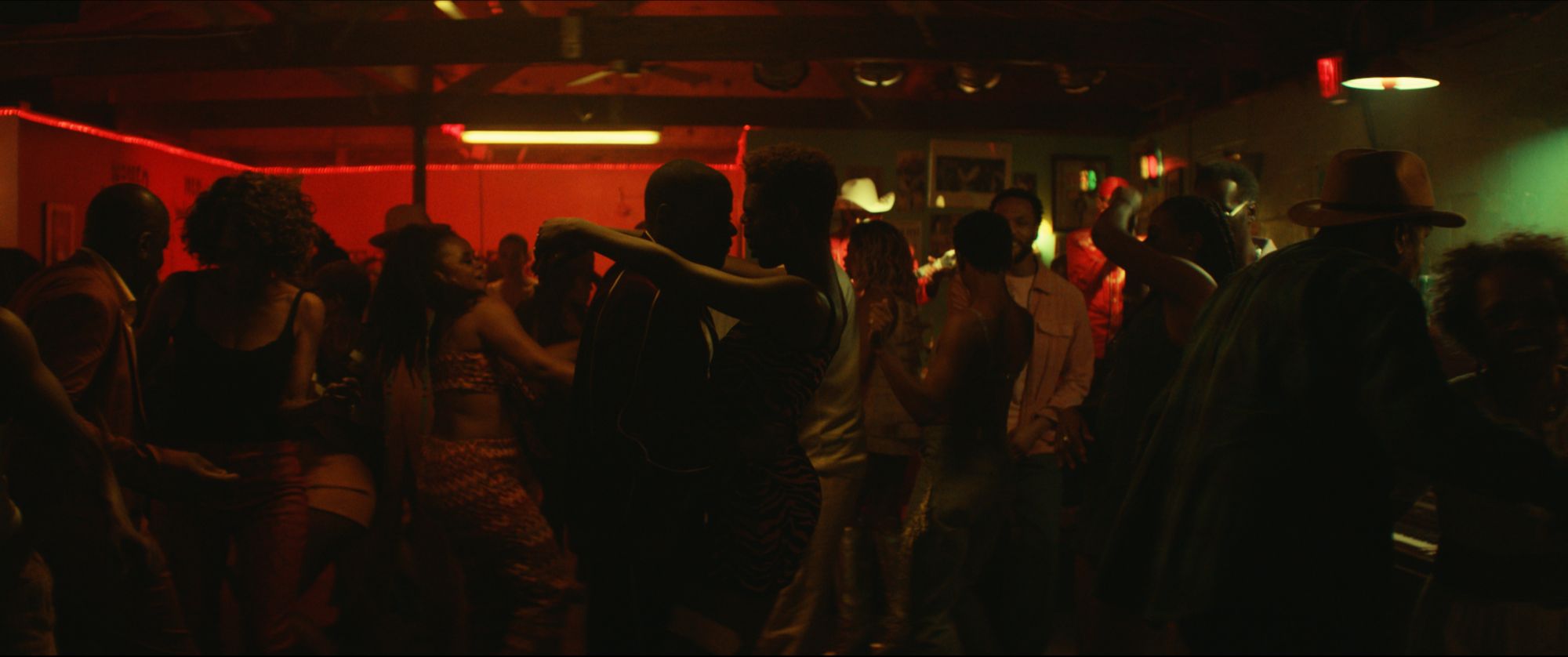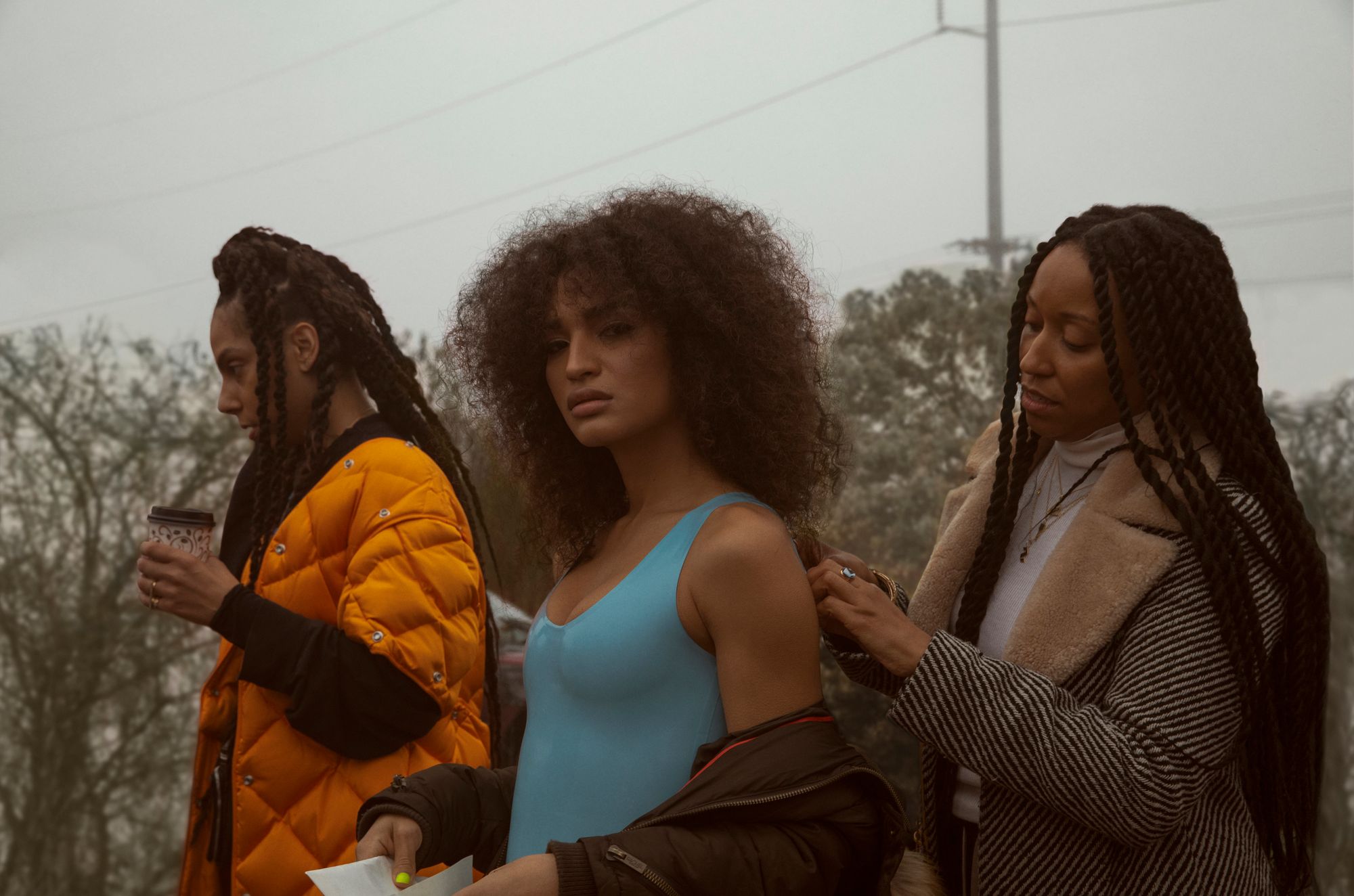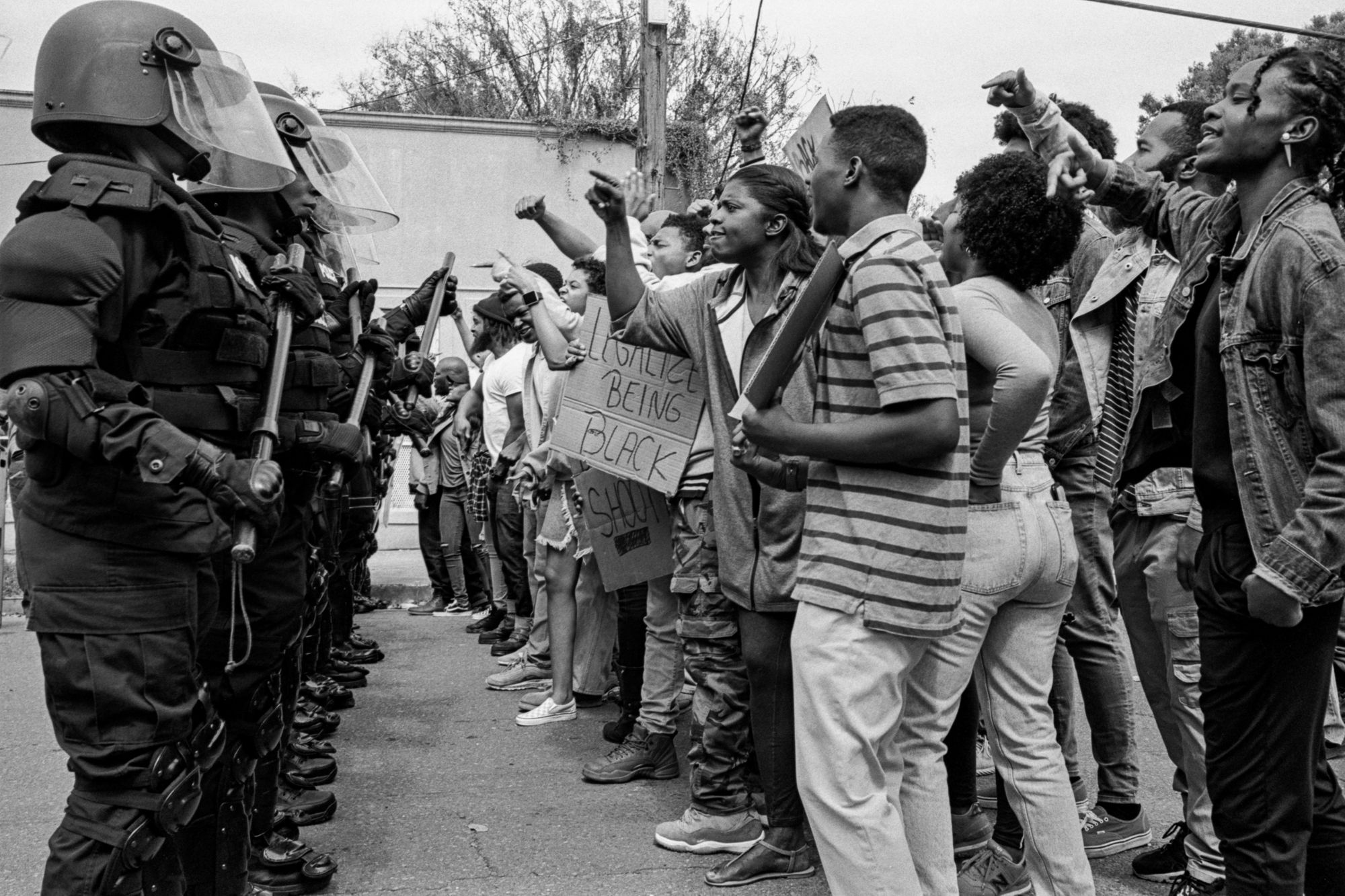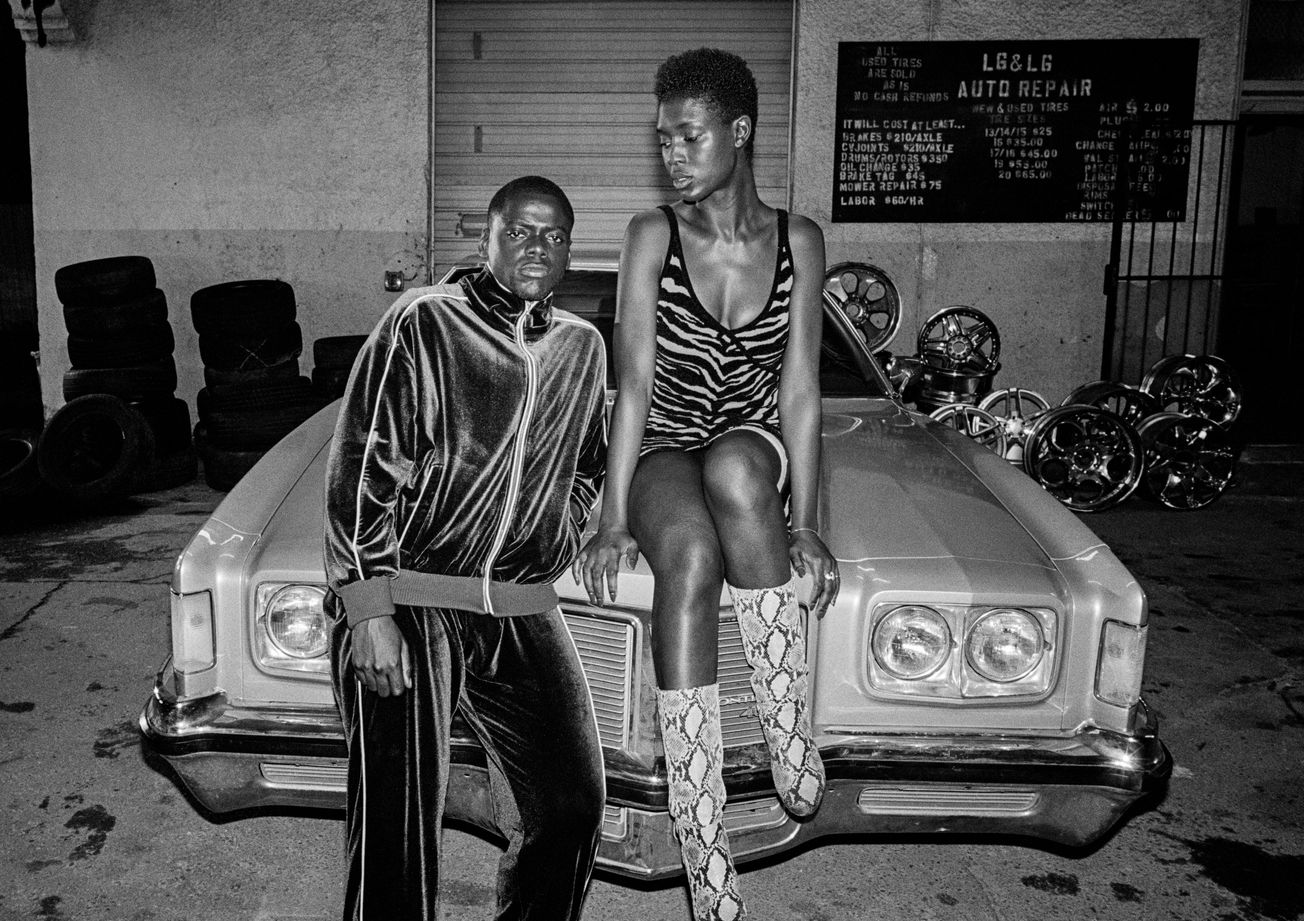By Louie Bell, Deputy Film & TV Editor
Love and injustice collide in Melina Matsoukas’ new drama to produce a whirlwind of beauty and violence, but the film has blazing complexities that have generated controversy.
‘But I’m not a criminal.’ … ‘You are now.’
The opening scene of Queen & Slim (2019) is almost immediately tense, thanks to the flash of police lights arriving in the dark behind two Black Americans out on a less-than-stellar first date. When Slim (Daniel Kaluuya) kills a white police officer in self-defence after a bout of streetside racist brutality, he and his date Queen (Jodie Turner-Smith) are forced to go on the run from the authorities in a wild chase that ends up being more than just escaping the police.
What ensues is a genuinely frightening tale of near-misses, road trips and shoulder-glancing from our two main characters as they frantically plan out each trip of the journey to avoid capture, which they both accept will guarantee both of their fates in the face of the U.S. judicial system. The film isn’t subtle in its reminder that the death penalty is still legal in Ohio and more than thirty other states.

Slim’s innocence is hardly touched on by the pair, but a police dash-camera recording of the incident is spreading like wildfire without their knowledge and begins to fracture relations between between the police and black citizens all over the state. Their anonymity busted, it reinforces a terrible tension between the chances of finding justice for their innocence and the likelihood of their capture.
The fantastic score and soundtrack comes to embody the tempo of their flourishing relationship even as the deathly grasp of the state gets tighter
Queen and Slim’s personalities initially clash as sparks fly over their different approaches to the situation, but as they navigate the murky landscape, never knowing who to trust and who to avoid, their differences are tempered by experience, and their relationship moulds them together as icons for many Black Americans across the state.
The Last Black Man in San Francisco is an honest ode to its titular city
The film is beautifully shot as they travel across the American countryside, the contrast in deep, autumnal colours to the grey Ohio seems to represent their freedom from their chasers, and throughout the film has a genuine tactility in its cinematography that puts the audience ever more in the pair’s strange new world.

The fantastic score and soundtrack comes to embody the tempo of their flourishing relationship even as the deathly grasp of the state gets tighter, and is celebratory yet mournful, as if Slim’s song choices as he drives on and on reflect his sombre understanding of what their final destination will be: exile or imprisonment.
Their differences are tempered by experience, and their relationship moulds them together as icons for many Black Americans across the state
But. And I hate to say it. But. Whilst they film has an undeniable beauty to it, it can sacrifice realism for a storytelling that can detract from its overall messages. Certain artistic decisions to bring the plot forward are simply not delivered as they should be, and entire scenes took me out of the tension that, for a film like this, need to be grounded in reality. I’m not saying it should sacrifice all artistic development for cold, hard truth but there are moments which simply seem out of place and diffuse the tension the film otherwise works so hard to develop.
Get Out star Daniel Kaluuya continues to be an important voice and an amazing actor
Now for the controversy. The climax of the film results in a scene that some audiences have responded to with frustration and anger, as it deals thematically with police violence towards Black communities in a way that is both extremely violent and perhaps less nuanced in its complexities than many have felt it should be. Without spoilers, it's hard to explain, but it’s a shocking and violent end to a film filled with so much love.
Where other filmmakers such as Barry Jenkins have succeeded in telling complex and multifaceted stories about Black America without fear of holding back, they’re always told with a consistent understanding of where the audience needs overt pointers to social issues, and where they don’t. The ending of Queen & Slim is the result of a narrative choice that tackles devastating social issues head-on, gouging a large ‘wound’ in the viewer’s conscience, without ever providing the ‘medicine’ - as Brooke C. Obie writes in Shadow and Act.

Personally, I’m split on the ending. Sometimes I sit on the side of the critics and commentators and share their frustration with its controversial ending, but I also see the way the world is going these days and reckon that maybe we need more of this raw, highly emotive filmmaking that will at least jog the hearts of many who aren’t behind the modern movement.
Regardless of the judgement it will come to face, I only hope that the story of Queen & Slim lives on in the minds of those who see it, and inspires more stories like this to be told in the future.
Queen & Slim is showing at the Watershed Bristol from the 31st January - 6th February
Featured - Watershed / 3BlackDot
Are you looking forward to Queen & Slim? Let us know!









